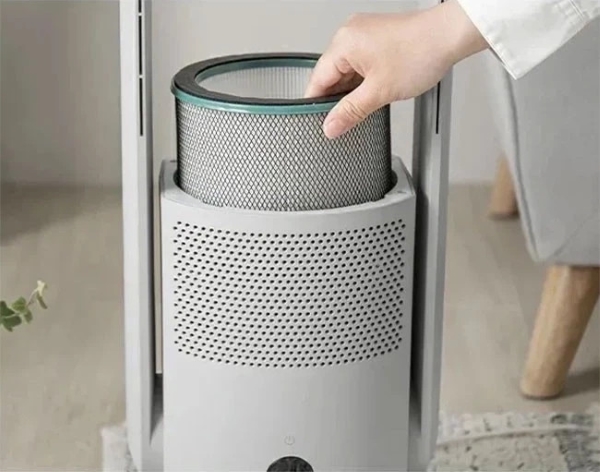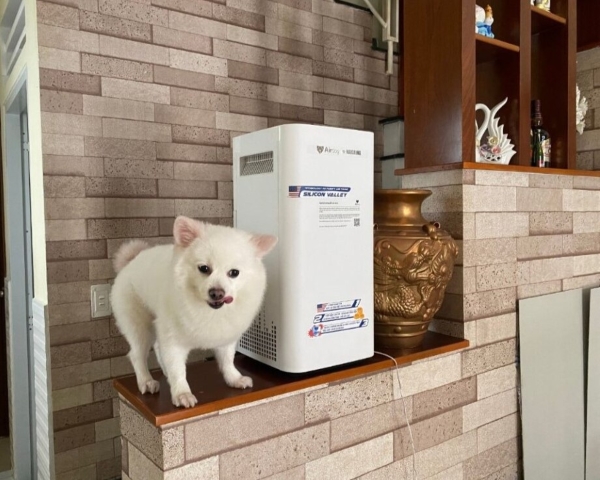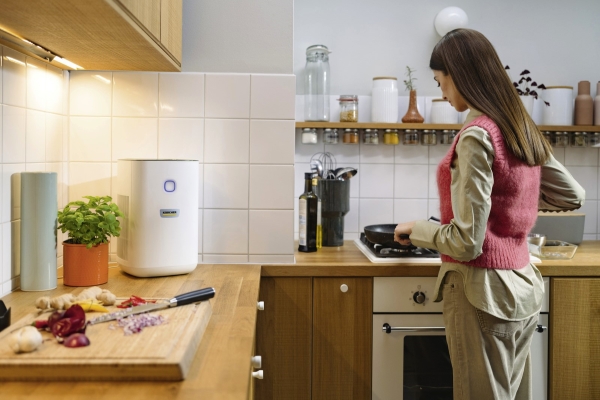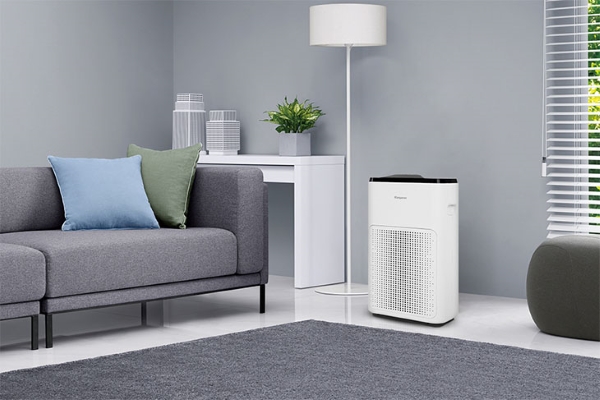Brushing Off the Myths: Do Air Purifiers Really Work?
Welcome, folks! We’ve all heard of air purifiers and their promise to cleanse our air, providing a healthier living space. But the burning question is, do air purifiers really work? And, importantly, are they an essential household addition?
Today, we’re taking a deep dive into the world of air purifiers. Let’s sanitize the air of doubts and truly grasp their effectiveness. Buckle up; it’s going to be an enlightening ride!
2. They can trap some bacterial and viral particles but aren’t a standalone solution for virus prevention.
3. For mold, an air purifier can reduce airborne spores but doesn’t resolve underlying moisture issues.
How Effective are Air Purifiers?
So, do air purifiers really work? In a nutshell, yes, they do. But – and it’s a big but – their effectiveness can vary dramatically depending on what you’re trying to filter out of your air. That’s why we will take a closer look at how they tackle different common pollutants like dust, allergens, and even odors. Read on to know the whole story!
Do Air Purifiers Help With Dust?

Let’s start by tackling the pesky problem of dust. Do air purifiers help with dust? The short answer is yes! They’re designed to capture and filter many types of dust particles, provided they have a good quality HEPA filter.
According to a study conducted by Environmental Science & Technology researchers, air purifiers equipped with HEPA filters can effectively remove up to 99% of indoor airborne particles, including dust (Gao X. et al., 2016).
Just regularly clean or replace your filters to maintain their dust-busting capabilities. So, the next time you find your house enveloped by a thin layer of dust a day after cleaning, remember that your trusty air purifier can definitely lend a hand!
You may like: How to Clean Your Air Purifier Filters Effectively
Can An Air Purifier Help With Allergies?
Now, let’s answer the question quite bothersome for all allergy sufferers: Can an air purifier help with allergies? The answer is a resounding yes! HEPA-filtered air purifiers are designed to capture even the tiniest allergens, such as dust mites and pollen.
According to a study by the International Journal of Environmental Research and Public Health, using an air purifier can reduce airborne allergens, including dust mite allergens, thereby relieving allergies [1]. So, an air purifier could be your new best friend for those battling dust allergies or hay fever, providing you with a much-needed breath of fresh air!
Do Air Purifiers Help With Viruses?
In the quest to protect ourselves from viruses, including COVID-19, we may wonder: “Do air purifiers help with viruses?” The answer is not so simple.
While HEPA filters in air purifiers can trap particulates as small as 0.3 microns, including several bacteria and virus particles, it does not guarantee the complete removal of live viruses.
A study published in Nature Scientific Reports indicates that well-ventilated rooms using air purifiers can reduce the risk of airborne transmission of COVID-10 by capturing virus-carrying aerosols.
However, it is crucial to understand that air purifiers should be combined with other preventive measures, including mask-wearing, social distancing, and frequent sanitization.
Do Air Purifiers Work With Pet Hair?

Let’s probe a key concern for pet owners: Do air purifiers work with pet hair? A wholehearted yes on this one. Air purifiers are effective against pet hair.
Air purifiers with HEPA filters can efficiently trap pet hair and dander, thereby mitigating the ‘furry problem.’ The HEPA filters can capture particles as small as 0.3 microns [2], larger than most pet hair, making them efficient at reducing pet dander in your environment.
Therefore, an air purifier can be a beneficial addition to households with pets, especially for those individuals prone to allergies or asthma.
Do Air Purifiers Help With Mold?
We come now to a particularly stubborn indoor pollutant: mold. Yes, air purifiers do help with mold, but with a caveat.
Air purifiers with HEPA filters are particularly good at trapping mold spores, owing to the capacity of these filters to catch particles as small as 0.3 microns. That means an air purifier can significantly reduce the mold spore count in the air.
However, it’s important to mention that air purifiers do not handle mold’s root cause– moisture. Mold typically thrives in damp conditions, so the key to combating mold is controlling moisture in your area. While air purifiers effectively reduce airborne mold spores, eliminating stay-put mold will require a different approach, such as using a dehumidifier or mold remediation measures.
Still, an air purifier could be part of a comprehensive solution for those seeking some relief from mold. More to come on the tech behind air purifiers and when they might not be quite so effective
Do Air Purifiers Work With Odor?

Yes, certain types of air purifiers can help with odor. However, this largely depends on the technology used in the air purifier.
While HEPA filters are efficient at capturing particulates, they are not very effective with odors. Air purifiers with activated carbon filters are more adept at reducing common household odors. Another technology, ozone generators, can neutralize odors. Still, they are not generally recommended for use in occupied spaces due to potential health risks.
Let’s dig a little deeper into this now. Activated carbon filters function through a process called ‘adsorption’ where odor particles get trapped on a porous surface. That can significantly mitigate typical household smells from pets, cooking, and smoking.
Contrarily, despite being effective against particles such as allergens, pet hair, and mold spores, HEPA-based air purifiers may not serve as robust solutions for odor issues as they can’t trap the tiny gas particles that constitute most odors.
Looking at ozone generators they cannot just mask but also neutralize odors. Yet, their use comes with the caveat of potential health concerns, especially related to lung irritation [3].
In essence, if you’re specifically looking to tackle odor issues, consider an air purifier with an activated carbon filter, and remember to use ozone generators with caution.
FAQs
Yes, the air purifiers can make a difference in improving indoor air quality by capturing allergens, pet hair, mold spores, and reducing odors. They can be beneficial for allergy and asthma sufferers.
Yes, air purifiers with HEPA filters effectively reduce airborne allergens, which can alleviate allergic rhinitis symptoms for many individuals.
Yes, HEPA filter-based air purifiers can reduce airborne dust mite allergens. However, they won’t eliminate dust mites entirely from carpets and bedding. To do so, you need to use a dust mite vacuum cleaner.

Yes, charcoal air purifiers (activated carbon filters) work in reducing various odors and trapping gas particles, providing aid in the removal of household smells.
The downside to air purifiers is that some models may produce ozone or be less efficient at capturing smaller pollutants, depending on the technology used. It’s essential to consider the specific air purifier technology when making a selection.
If you are looking for top-rated air purifiers in the Philippines, check out Hometoppicks’ recommendation.
Conclusion
In conclusion, air purifiers demonstrate varying levels of effectiveness depending on the particular issue and technology employed.
HEPA filters excel at capturing particles such as allergens, pet hair, and mold spores but are less effective for odors. Air purifiers with activated carbon filters work wonderfully at reducing common household odors. To choose the right air purifier, consider your specific needs carefully and assess the available technologies.
If you struggle with allergies or asthma, air purifiers may provide noticeable relief in your indoor environment.
Sources:
- Myatt, T.A., et al. (2008). “Control of asthma triggers in indoor air with air cleaners: a modeling analysis.” Environmental Health.
- “What is a HEPA filter?”. U.S. Environmental Protection Agency
- “Ozone Generators that are Sold as Air Cleaners.” Environmental Protection Agency.
Tags: How-to
Beryl, a Pharmacy graduate, combines her academic expertise with a passion for cozy homes at Hometoppicks. With 3+ years of experience in researching and testing household and home care products, Beryl manages related content at Hometoppicks. Trust in her meticulous nature and profound knowledge to provide reliable advice and product suggestions, ensuring your home remains comfortable and convenient. You can find more about her here.
